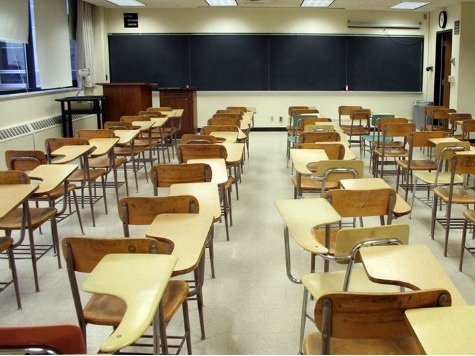DALLAS, Texas — On the heels of the latest teacher-student sex scandal and as part of October’s Safe Schools Week, the Texas Education Agency (TEA) Commissioner of Education Michael Williams addressed the importance that everyone plays in identifying and reporting cases of inappropriate educator-student sexual misconduct. They have risen 27 percent since 2009.
In a news release, the TEA reported on the disturbing number of investigations based on allegations of improper student-teacher relationships.
“Over the past three school years, the number of investigations opened by TEA staff specifically on allegations of inappropriate relationships has increased, from 141 in 2009-10 to 179 in 2013-14. Under the state penal code, a school district employee commits a second-degree felony if he or she engages in sexual contact with a student who is not their spouse, even if that student is 18 years of age,” it stated.
Breitbart Texas reported on the latest incidence where 24-year-old Houston-area high school teacher Ashley Zehnder admitted to having a sexual relationship with a 17-year-old male student and is now facing criminal charges.
Also, Breitbart Texas reported on a rash of teacher-student sexual incidences in the 2013-14 school year including a 26-year old female teacher who was arrested for allegedly have sex with a 16-year-old male student plus sexual misconduct cases from around the state. One involved a 6-year-old girl.
Williams stated, “Anyone reporting such an incident to local school administrators — especially students and parents — must be confident that their report will be investigated fully and impartially.” He also said, “Everyone who works with students in schools across our state holds a position of trust that should never be called into question.”
The news release noted that TEA works with school district officials and local law enforcement on these kinds of investigations. It highlighted the act of reporting inappropriate behavior as a shared responsibility among students, parents, teachers, administrators, coaches and staff.
“The Texas Educators’ Code of Ethics provides rules for standard practices and ethical conduct toward students, professional colleagues, school officials, parents and members of the community. The Code specifically calls on teachers to refrain from inappropriately communicating with students through the use of social media,” according to the TEA news release.
The agency pointed out that through technological advances, electronic communication (such as cell phone, text messaging, email, instant messaging, blogging, or other social network communication) have provided a “private channel” to contact students during and after school hours. They highlighted that the role of parents is to help “monitor any communication via social media directly to their child.”
Group communication “such as to an entire class regarding homework, changes in practice times to all athletic team members” may well serve a valid service, although direct emails, texts or instant messaging to students “should be discouraged at both the school and parental level,” according to the TEA.
They also indicated that many school districts have adopted social media policies to clearly define appropriate uses of modern communication technology.
In July 2013, the TEA updated its Reporting Educator Misconduct for charter school application. Sadly, it listed Texas as No.1 in inappropriate teacher-student relationships nationwide. A corresponding Powerpoint presentation detailed the actions on how-to take to properly handle such situations.
“Educator misconduct is not limited to inappropriate contact or relations between a teacher and a student. Nor are they limited exclusively to teachers. Any teacher, paraprofessional, counselor, librarian, coach, or administrator at any level who holds a certification issued by the State Board for Educator Certification is considered an educator,” the presentation explained.
Also, it emphasized that it is a teacher’s obligation to protect their students, according to Chapter 21.006 of the Texas Education Code and Chapter 249.14 of the Texas Administrative Code.
Still, the question of why this is happening is paramount. The Houston Chronicle pointed out no reason was given, despite the surge of sexual misconduct.
“Local school district superintendents are required to report allegations of inappropriate relationships at the local level and state level, and thehigher number of incident reports could be because folks are getting better about identifying and reporting improper educator-student relationships,”the Chronicle suggested.
It could also be the result of “more shady teachers hanging out at Texas schools, so more are getting caught,” they posited.
Still, while the reasons for any inappropriate teacher-student sexual occurrences remain unknown, the troubling reality of such incidences and the increase of them at all can be viewed as a tragic reflection on 21st Century society.
The Texas Safe Schools Week is held annually in conjunction with the national America’s Safe Schools Week.
Follow Merrill Hope on Twitter @OutOfTheBoxMom.

COMMENTS
Please let us know if you're having issues with commenting.